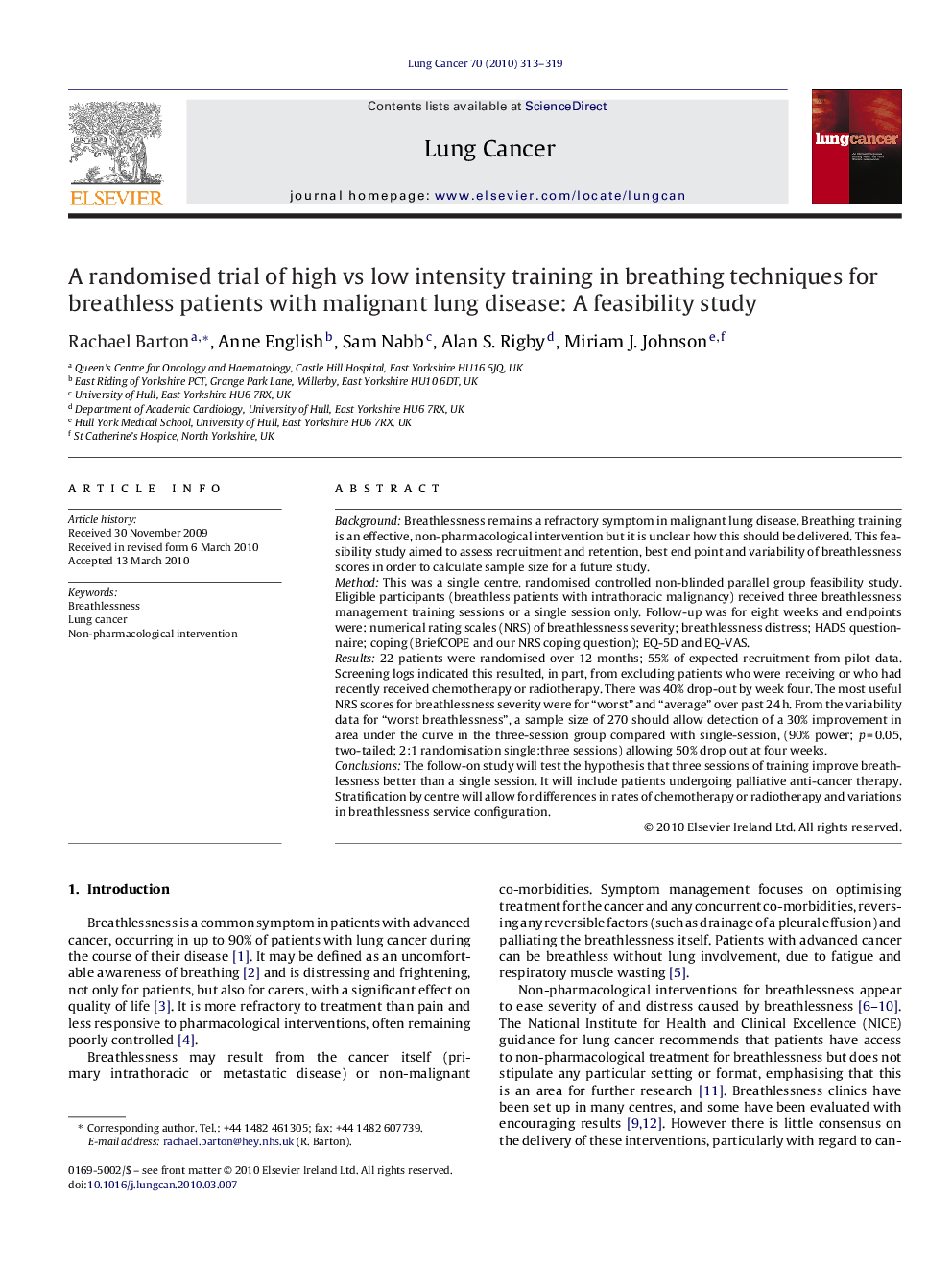| Article ID | Journal | Published Year | Pages | File Type |
|---|---|---|---|---|
| 2141846 | Lung Cancer | 2010 | 7 Pages |
BackgroundBreathlessness remains a refractory symptom in malignant lung disease. Breathing training is an effective, non-pharmacological intervention but it is unclear how this should be delivered. This feasibility study aimed to assess recruitment and retention, best end point and variability of breathlessness scores in order to calculate sample size for a future study.MethodThis was a single centre, randomised controlled non-blinded parallel group feasibility study. Eligible participants (breathless patients with intrathoracic malignancy) received three breathlessness management training sessions or a single session only. Follow-up was for eight weeks and endpoints were: numerical rating scales (NRS) of breathlessness severity; breathlessness distress; HADS questionnaire; coping (BriefCOPE and our NRS coping question); EQ-5D and EQ-VAS.Results22 patients were randomised over 12 months; 55% of expected recruitment from pilot data. Screening logs indicated this resulted, in part, from excluding patients who were receiving or who had recently received chemotherapy or radiotherapy. There was 40% drop-out by week four. The most useful NRS scores for breathlessness severity were for “worst” and “average” over past 24 h. From the variability data for “worst breathlessness”, a sample size of 270 should allow detection of a 30% improvement in area under the curve in the three-session group compared with single-session, (90% power; p = 0.05, two-tailed; 2:1 randomisation single:three sessions) allowing 50% drop out at four weeks.ConclusionsThe follow-on study will test the hypothesis that three sessions of training improve breathlessness better than a single session. It will include patients undergoing palliative anti-cancer therapy. Stratification by centre will allow for differences in rates of chemotherapy or radiotherapy and variations in breathlessness service configuration.
